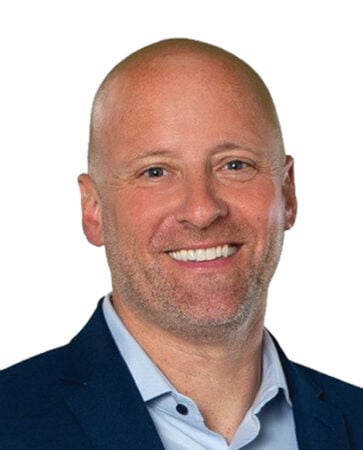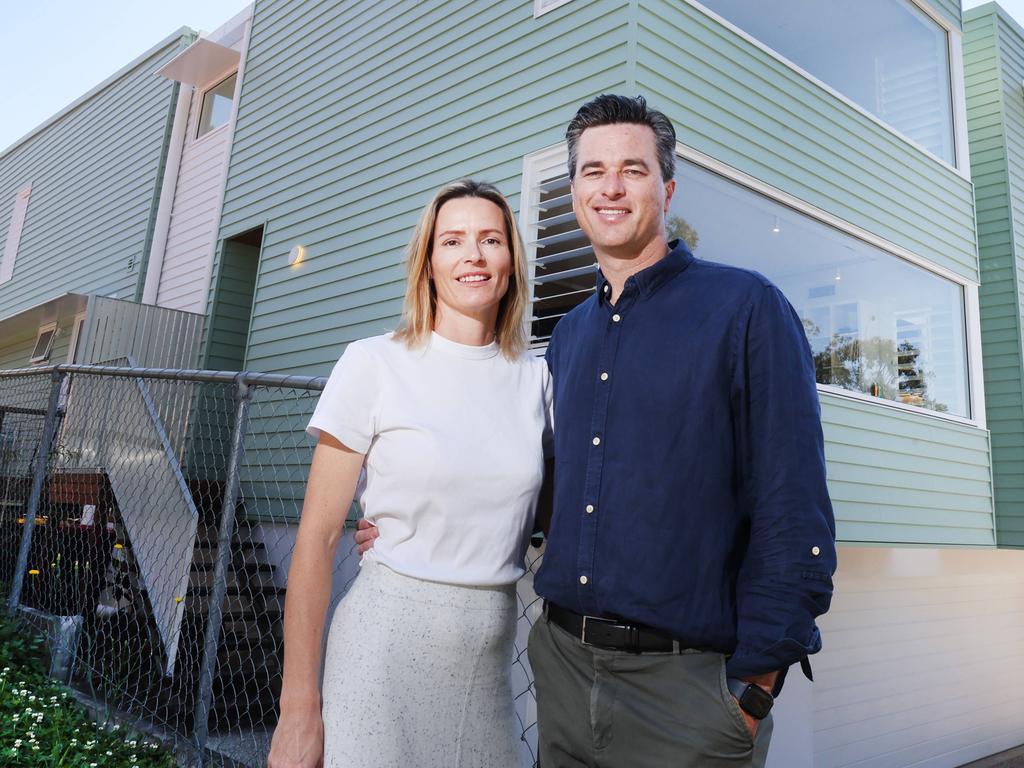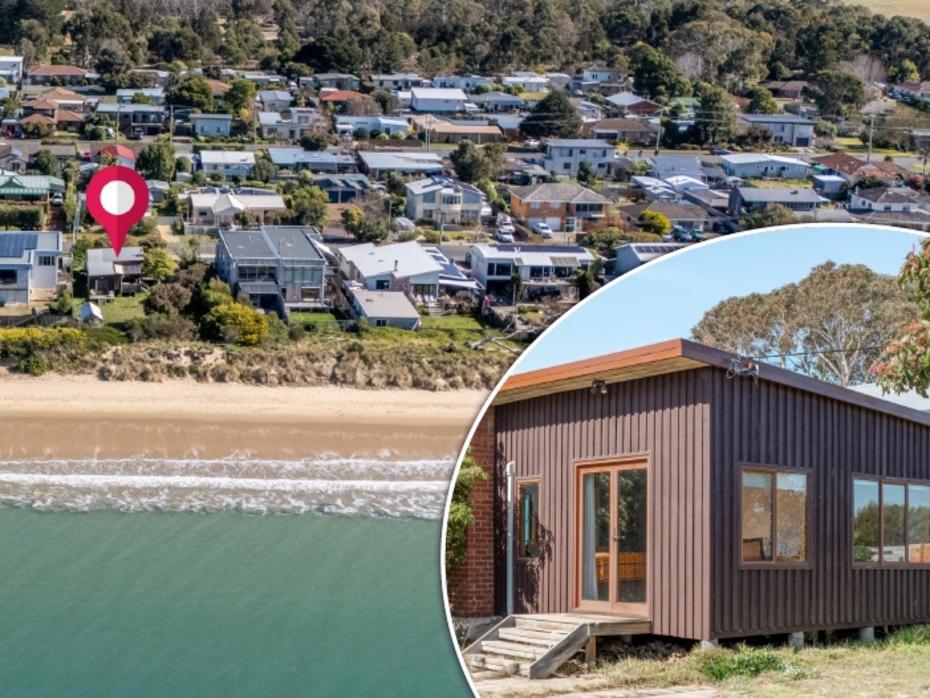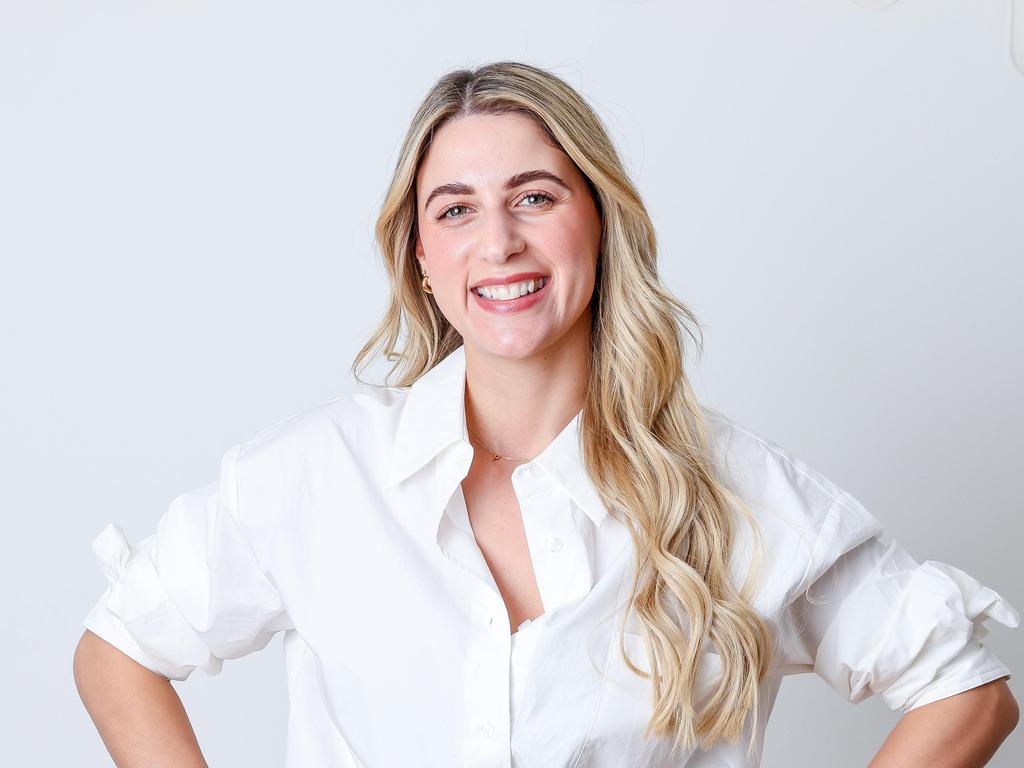Coldwell Banker Exec Says Current Market Is A “Growth Window”

Coldwell Banker Affiliates President Jason Waugh sees the light at the end of the tunnel.
Waugh, who headlined Coldwell Banker Gen Blue’s Tuesday general session, said historical data from the past three market downturns leads him to believe that the market is finally near the end of this cycle, which has been influenced by a series of atypical economic, social, and political events. While some agents are waiting for the storm to fully pass, Waugh said he’s encouraging his affiliates to power through uncertainty and begin building momentum.

Jason Waugh
“I want to begin by acknowledging the journey we’ve all been on. The past three years have brought a contracting or flat market,” he said on Tuesday. “It’s been complex. It’s been challenging. It’s been fluid. It’s been volatile. But here’s the truth: This moment … right now … may be one of the most important of your career.”
“Why? Because when a market shrinks, when uncertainty dominates headlines, market share shifts. This is when the committed separate from the pack. Everything we do today is building for the tailwinds that are coming,” he added. “Flat markets are not waiting rooms — they’re growth windows. When the market heats up again, the playing field levels. But right now? It’s not level. And that means you have the edge — if you’re all in.”
The day after his rousing speech, Waugh sat down with Inman to dive further into market shifts, consumer uncertainty, industry infighting, and what excites him most about the future.
This conversation has been edited for length and clarity.
I read your remarks from GenBlue on Tuesday, and what stood out to me were your comments about the market being at the end of a flat cycle. I must admit, as a journalist, it can be challenging to suss out where we are — I read some reports that are quite optimistic about the coming year and others that say we’ve yet to hit rock bottom. Can you tell me more about your view on where the market is?
You know, the headlines are always pretty interesting. But the reality is that trends follow patterns, and if you look at history as a guide, past downturns typically last three to four years. 1980 to 1982, 1989 to 1991, 2008 to 2011—all of those cycles were three to four years. This current cycle is a little over three full years in the making, and that alone would suggest we’re nearing the end of this cycle.
And then you complement that with data like wages that are now outpacing home prices, mortgage rates are certainly on the decline the past eight weeks or so, inventory is normalizing, and then price appreciation is slowing. So if you look at history and then current market trends, it would suggest that if history were going to repeat itself, it would suggest that we’re nearing the end of this cycle.
And so, the message to our team was pretty simple: Rely on history and the current data, really focus on your professional development, and continue to grow.
How do you compare this ‘flat cycle’ to the three previous cycles? What will be the main lesson — let’s say 20 to 30 years from now — about this time in the real estate industry?
Going back to 2008 to 2011, the difference between that period of time and this one was that both units and prices took a hit. This one really has just been [a decline] in units. Prices have continued to increase.
A few years ago, it was the same market conditions everywhere. It has returned to a very hyperlocal real estate market. So what is happening in the Southeast is different than the Northeast, which is different than the Midwest, which is different than the Pacific Northwest. You can talk about macro trends, but when it comes to the consumer, you really have to analyze the hyperlocal market that they’re in.
I think if we accelerate 20 to 30 years from now and look back on the current post-COVID surge, we’ll look back and see if dropping interest rates was a good idea. I mean, to have 2 [percent] or 3 percent 30-year fixed mortgage rates, for those who were able to take advantage of it, was great. But the lock-in effect is very, very real.
Who’s going to trade in a 3 percent interest rate? That’s got to be a very need-based situation, probably not a want.
As history plays out, I think we’ll look back on this period of time and ask, “Did we need to go that extreme on mortgage interest rates? Was that a good thing for just housing in general?” Because now people have an expectation that a 6.5 percent mortgage rate is high.
I’ve seen people asking that question now, and I think it’ll take some time for us to reach an accurate conclusion. I mean, the past five or so years have been an anomaly. Nothing has really followed historical trends. But going back to the idea that we’re at the end of this cycle, you propped up a lot of positive metrics for wages, mortgage rates, etc.
But one thing I’ve learned, especially in chatting with economists, is that the numbers only tell one part of the story. The other part, and arguably the most important, is how people feel about what’s happening. How does an agent navigate a market where people don’t feel good, even if some key metrics are trending positively?
Great question. There’s just so much uncertainty; human beings don’t like uncertainty. We’re kind of navigating a volatile and uncertain time, and I think we still have that in the short term. With that in mind, it’s our responsibility to interpret the data so we can put the consumer in a position to make a well-informed decision.
I will say that there’s a tendency where people want to wait out the real estate market. Think about mortgage rates. They’ve been on the decline for eight weeks, which is pretty significant, and the Federal Reserve has a meeting later today and we’re waiting to see what that outcome will be (Note: This conversation happened before the Fed decided to cut short-term rates by 1/4 percent).
If mortgage rates continue to decline, people tend to wait and say, “Well, maybe it’s going to keep declining. I’ll wait until it gets to the bottom.” And then rates go back up, and people wait again. It’s just it’s such an uncertain time. I think that is what is keeping people sidelined.
For real estate professionals, they just have to understand the market data and package it in a way that is easy to understand. It puts the consumer in a position to make a well-informed decision based on what their needs and wants are.
It’s not our job is not to convince people to act in this market. We’re more like financial advisors for the asset class of housing. Are they making good decisions with this asset, which just happens to be a home or commercial property or land? And how can we help them?
So, the other part of the uncertainty equation is some of the industry infighting that’s made its way to the public. Consumers are tuned into debates about buyer-broker commissions and private listing networks, and have, it seems, come out with a poorer sentiment of agents. How do agents break through the noise caused by these debates?
There is a lot of noise, and I think it’s a very appropriate term to describe what’s happening. I think at the end of the day, you have to focus on controlling your controllables. A lot of these things are out of your control. What you absolutely can control is understanding local market dynamics and macroeconomic factors, so you can put your customer base in the best position to make well-informed decisions. And that’s it.
You know, when it comes to private network conversations, I believe that groups that have strong opinions on that are typically self-serving. It’s really situational. What’s best for the customer? You know, there’s multiple marketing strategies. There’s multiple pricing strategies. Our job as advisors is to explain what those strategies are for that specific situation, for that specific customer, so they can make a decision.
I know we only a have a few minutes left, so I’d like to touch on your equation for success: Attitude and action plus routine and relationships. How does that play into the success you want for your affiliates, and how does that influence your views on Coldwell Banker’s trajectory in the coming year?
I think everything’s about mindset. So, you know, for me, that is so important to success personally and professionally, whatever it may be. In respect to that formula, I think it’s really about prioritizing how you invest your time, and if you show up with the right attitude, you do the right activities, you’re disciplined and you focus on the customer, you will be successful.
From an enterprise perspective, I’m really excited about our focus on artificial intelligence and how that is going to help sales professionals be more efficient operationally. It’s not intended to replace the relationship by any means. It’s actually intended to reallocate your time into relationships because you can leverage AI to handle operational tasks.
I’m excited about the market opportunity today, given what the data is telling us, but then specific initiatives like our AI innovator challenge. It just connects our people and our agents, helping each other grow and be successful, irrespective of what the market’s going to do, because we can’t control it.








